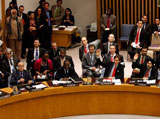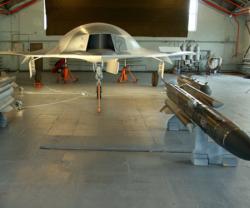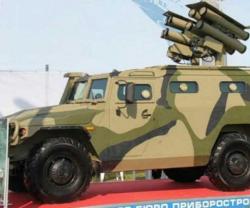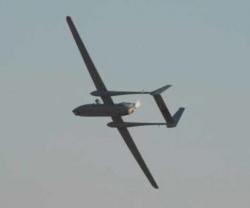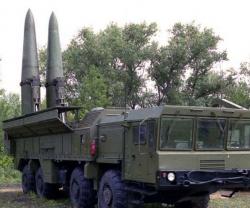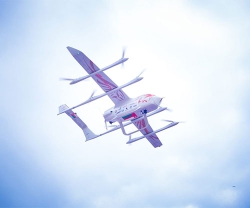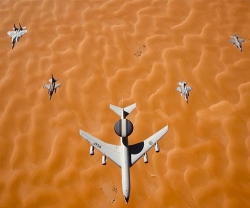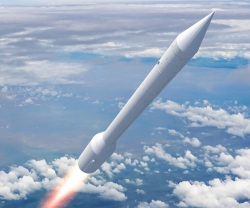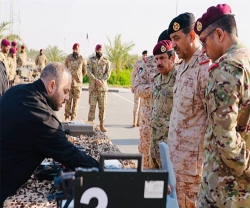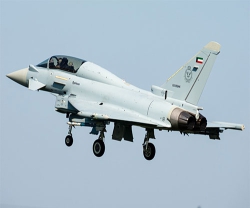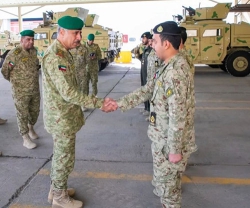The UN Security Council, meeting in emergency session, passed a resolution endorsing a no-fly zone to halt government troops now around 100 km (60 miles) from Benghazi.
It also authorized 'all necessary measures' -- code for military action -- to protect civilians against Gaddafi's forces.
French diplomatic sources said military action could follow within hours, and could include France, Britain and possibly the United States and one or more Arab states; but a US military official said no immediate US action was expected.
While other countries or NATO may play roles in military action, US officials expect the United States, with its extensive air and sea forces, would do the heavy lifting in a campaign that may include airstrikes on tanks and artillery.
10 of the Council's 15 member states voted in favor of the resolution, with Russia, China and Germany among the 5 that abstained. There were no votes against the resolution, which was co-sponsored by France, Britain, Lebanon and the United States.
Apart from military action, it expands sanctions against Gaddafi and associates imposed last month. Among firms whose assets it orders frozen are the Libyan National Oil Corp and the Central Bank.
Gaddafi's Defense Ministry warned of swift retaliation, even beyond Libyan frontiers, to any military action against the oil-exporting nation.
'Any foreign military act against Libya will expose all air and maritime traffic in the Mediterranean Sea to danger and civilian and military (facilities) will become targets of Libya's counter-attack,' the Ministry said in a statement.
Proposals for action could include no-fly and no-drive zones, a maritime exclusion zone, jamming army communications and intelligence help. Air strikes would almost certainly be launched to knock out Libyan radar and air defenses.
An Italian government source told Reuters Italy was ready to make its military bases available. The airbase at Sigonella in Sicily, which provides logistical support for the United States Sixth Fleet, is one of the closest NATO bases to Libya.
Past no-fly zones have had mixed success. The UN imposed a no-fly zone over Bosnia in the 1990s, although some analysts say the measure did nothing to stop massacres such as the 1995 slaughter of more than 8,000 Muslim men and boys in the town of Srebrenica.
Source: Reuters

